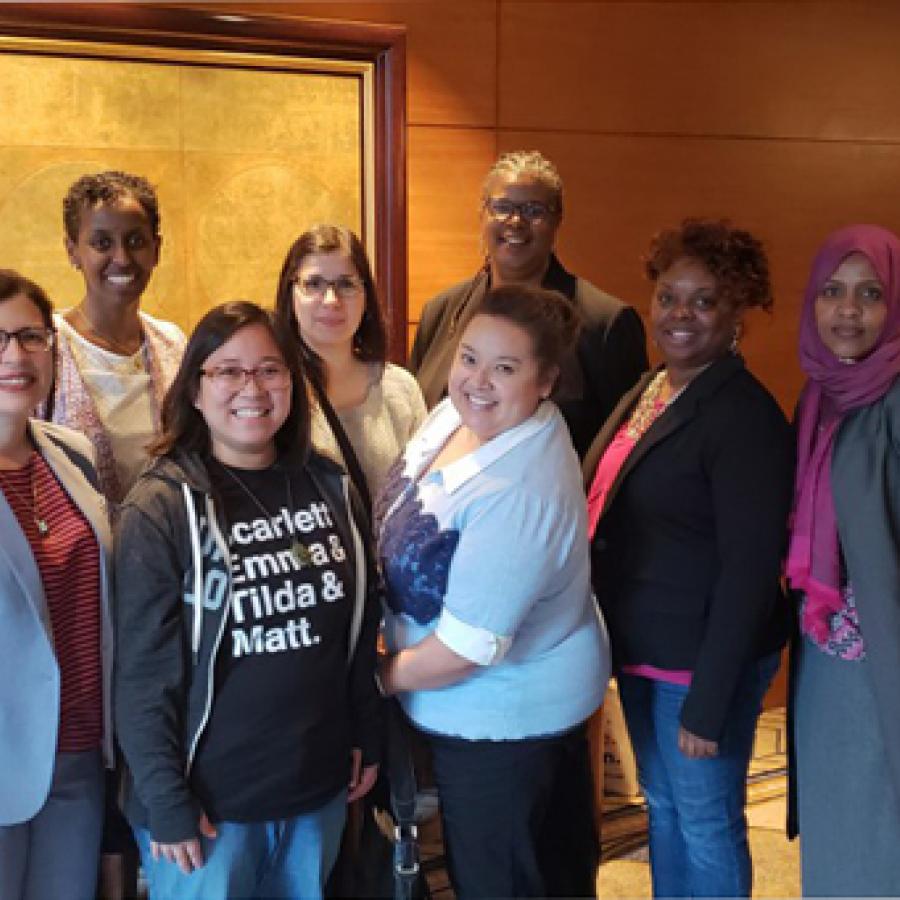Economic Inclusion in Southern Cities Biannual Convening Recap

Equity is the superior growth model. Research confirms that supporting residents and workers of color in reaching their full potential is more than just a moral imperative. Indeed, it is an economic imperative as well. Economists tell us that inequality hinders growth and greater inclusion accelerates it. As the diversity of this country continues to grow, and we move closer towards becoming a majority people of color nation in 2044, embracing these principles will only become increasingly important. It was to this end, and as part of their unwavering commitment to promoting racial equity, that the Annie E. Casey Foundation first launched the Advancing Economic Inclusion in Southern Cities (EISC) learning community back in 2015.
EISC consists of municipal officials and staff, local philanthropists, and business and community partners from seven major cities in the South: Asheville, Atlanta, Charlotte, Memphis, Nashville, New Orleans, and Richmond. On April 2-4, 2019, EISC representatives gathered at the Federal Reserve Bank of Richmond branch in Charlotte to discuss challenges and solutions for advancing increased participation of business enterprises owned and operated by women and people of color. In addition to Casey, the Federal Reserve banks of Atlanta, St. Louis, and Richmond have been partners in this project and hosted virtually all of the cohort meetings thus far.
The convening began with a rousing video of acclaimed poet Danez Smith speaking passionately about the impact that racial inequities have had and continue to have on young people of color in cities across the country. This poem served as powerful motivation for the three-day convening and helped to ground participants in the urgent need for change present in the communities they seek to serve. The poem also underscored the importance of moving beyond representative diversity towards tangible investment in underserved communities, full inclusion of residents and workers in decision-making processes, and the removal of systemic barriers that continue to hold back low-income people of color.
Over the course of the three-day meeting, participants were joined by committed advocates, activists, academics, and municipal leaders to help them develop viable strategies for advancing equity and inclusion. For example, on the second day Memphis Mayor Jim Strickland and Charlotte Mayor Vi Lyles each spoke about inclusion efforts underway in their respective cities. For example, the city of Charlotte commissioned a disparity study to document the underrepresentation of people-of-color-owned business enterprises among those receiving contracts for city procurement opportunities. Similarly, Memphis is also using the city’s purchasing power to help grow and expand small, and people-of-color owned businesses.
Other noteworthy strategies for advancing racial equity and economic inclusion include:
- Local and targeted hiring – require or incentivize businesses that receive public resources, such as government contracts or tax breaks, to hire workers living in a particular geographic area or from specific populations within the community.
- Anchor institution procurement – leverage the tremendous purchasing power of universities, hospitals, community colleges, and large private sector employers to help not only grow new businesses through contracting, but also fill open employment opportunities at these institutions. The Chicago Anchors for a Strong Economy (CASE) is a noteworthy example of this strategy in action.
- Tailor workforce strategies – career training and education opportunities should be targeted for industries slated for growth, or those that have historically had barriers to entry for low-income people of color similar to the EARN Maryland program.
- Asset-building strategies – take an intergenerational approach to ensure that economic inclusion strategies will address the racial wealth gap through efforts such as individual development accounts for low-income families, or city-wide efforts such as the Richmond Office of Community Wealth Building or Atlanta Wealth Building Initiative.
To learn more about economic inclusion in general and the challenges and opportunities facing Black-owned business enterprises in particular, please check out the latest report from the Association for Enterprise Opportunity (AEO), The Tapestry of Black Business Ownership in America: Untapped Opportunities for Success.
